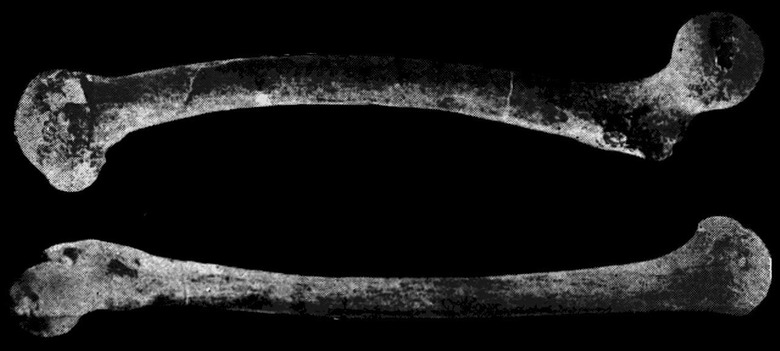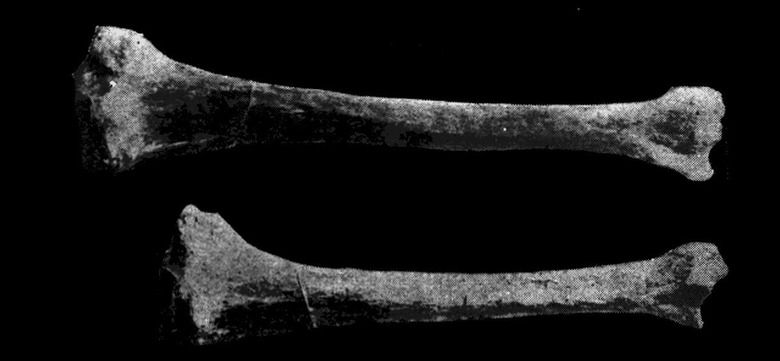The FCC Net Neutrality Death Proposal Is Here: It's Worse Than We Thought
Today Trump-installed FCC chairman Ajit Pai released his plan to destroy Net Neutrality. It's worse than we thought it might be. Yesterday we went over the Trump Administration's 3-point plan to steal internet from poor people and cut all rules from internet provider businesses. Today we're seeing that the plan cuts much more than what we assumed it would.
The document released by the FCC's current chairman Ajit Pai includes language that's HIGHLY misleading at best, and at its worst, a stack of falsehoods so worded as to confuse the reader and cloak the truth entirely. One of the first statements in the document does just such a thing, suggesting that because the first government rules for the internet were light, so too should those non-rules be the extent of the rules today.
"This Declaratory Ruling ...would return to the bipartisan consensus on lighttouch regulation, ending utility-style regulation of the Internet." #NetNeutrality This is like saying there's no reason for street signs because, at one time, nobody saw a need for one. pic.twitter.com/ZOg3XR7qyx
— Chris Burns 🍂 ☕ 🔥 (@t_chrisburns) November 22, 2017
The FCC's plan is like Robin Hood in reverse. The plan is to take internet access from poor people and giving a regulation-free wild west to ISPs. The pro-Net-Neutrality FCC of the past did the following:
1. Added internet access to Lifeline, a program that provided (and continues to provide) subsidies for below-poverty-line people to access the web.2. Boosted broadband baseline speed requirements to incentivize ISPs to raise standard of living for Americans.3. Enacted Net Neutrality rules to make certain no ISP could block any part of the internet or make any part of the internet faster for any end user.

The more recent Trump-installed FCC is doing or is planning on enacting each of the following redactions:
1. Restrict Lifeline's Native American Reservation-specific subsidies to urban areas only. Restrict Lifeline to only work with ISPs that run their own infrastructure: Sprint, AT&T, T-Mobile USA, and Verizon.2. Hobble broadband baseline speed requirements to allow ISPs to give only their slowest speeds to those who can't afford anything better.3. Destroy Net Neutrality with a bill that also aims to destroy rules that pre-date the rules enacted specifically for Net Neutrality.
The New Proposal
This new proposal includes language that cuts rules that weren't included in the 2015 reclassification of internet as a utility. This isn't a simple repeal of a rule made a couple of years ago. This is a repeal of a large stack of rules for ISPs put in place to protect American citizens, rules dating back to the birth of widespread internet on this planet.
Before we go any further - if you want to read the entire document, go ahead. The document can be found in PDF form over at FCC document storage right now. If this document is removed, we'll re-upload elsewhere.

The document includes a number of statements of intent in which the FCC of today suggests the FCC of the past was a big scary monster that didn't like capitalism so they stomped on poor, defenseless businesses. The language used here is something appropriate for a blog, not an outline for a document that'll shred stacks of government documents to pieces in a single swipe.
These sentences from this document are shrouded in language that aims to lead the reader with a carrot toward the conclusions Ajit Pai and the rest of the Trump Administration want them to reach. The document reads like an opinion column.
"Eliminate the vague and expansive Internet Conduct Standard, under which the FCC micromanaged innovative business models, along with the bright-line rules."
General Conduct Standard
The so-called "Internet Conduct Standard," as the document calls it, is actually known as the "General Conduct Standard" (GCS.) When one searches for the term "Internet Conduct Standard" on Google, they find copies of the proposal outlined by the FCC, not the actual GCS. This may have been done to mislead the general audience – and is almost certainly in place to allow the scope of this proposal to be more broad than the rules it aims to destroy.
The GCS prohibits Internet Service Providers from enacting practices which "unreasonably interfere or unreasonably disadvantage" the ability of online content and online service providers to access customers freely. This same rule prohibits ISPs from practices which "unreasonably interfere or unreasonably disadvantage" consumers ability to access online services and content of their choosing.
ISPs basically shouldn't block consumers from services and content, and also shouldn't block services and content providers from consumers. The current FCC and Ajit Pai want to allow ISPs to run whatever interference they want between the user and the content of the internet. ISPs would do this to profit from the end user who wishes to access the most popular sites. They'd also do this to profit from brands that don't want to be blocked from consumers.
They'd also find a thousand other ways to profit from consumers at the detriment to consumer choice and affordability. There are thousands of reasons why ISPs want the ability to put up blocks between internet users and the content and services the internet provides.
Bright-Line Rules
The bright-line rules further enshrine the FCC's ability to keep ISPs from blocking, throttling, or prioritizing content on the internet. The document FCC-15-24A1 (PDF) lists the "Clear, Bright-Line Rules" as such:
FCC Clear, Bright-Line Rules (Pai wants to cut):1. No Blocking: "A person engaged in the provision of broadband Internet access service, insofar as such person is so engaged, shall not block lawful content, applications, services, or nonharmful devices, subject to reasonable network management."2. No Throttling: "A person engaged in the provision of broadband Internet access service, insofar as such person is so engaged, shall not impair or degrade lawful Internet traffic on the basis of Internet content, application, or service, or use of a non-harmful device, subject to reasonable network management."3. No Paid Prioritization: "A person engaged in the provision of broadband Internet access service, insofar as such
person is so engaged, shall not engage in paid prioritization."
Paid Prioritization is further defined as : "The management of a broadband provider's network to directly or indirectly favor some traffic over other traffic, including through use of techniques such as traffic shaping, prioritization, resource reservation, or other forms of preferential traffic management, either (a) in exchange for consideration (monetary or otherwise) from a third party, or (b) to benefit an affiliated entity."
In other words, the ISPs job is to serve internet, one speed of internet for all content, and all content unblocked as such.
Reading is hard!
The proposal also includes a note on the following: "[The order would] Find that the public interest is not served by adding to the already-voluminous record in this proceeding additional materials, including confidential materials submitted in other proceedings."
In other words – FCC chairman Ajit Pai doesn't want there to be any specifics getting in the way of ISPs doing whatever they want. This is just one part of the massive cut-down Ajit Pai wants to do in the FCC with regard to the internet. We've only just begun to explore the damage this proposal can and will do to the internet very, very soon, with consequences lasting evermore in to the future.
As former FCC chairman Tom Wheeler said yesterday, "They are 'protecting consumers' by disavowing responsibility to do just that. They are providing for 'better regulation' by giving authority to the FTC which has no regulatory authority. They are walking away from the clear statutory mandate to oversee telecommunications services by cleverly saying local internet delivery is not a telecommunications service."

Action Time / Turkey Time
This proposal was released Thanksgiving week, and will be voted upon on December 14th. FCC chair Ajit Pai seems to think that he can sneak this set of rule-choppers in while the United States is away on holiday. Don't let him. This is too important to let slip away on a boat of gravy, covered in holiday wrapping paper.
Head over to Battle For The Net (dot net) to act on this situation. BFTN makes the process as simple as you want it to be, as quick as you need it to be. The site also includes more detailed information for those users that wish to become more deeply involved.
